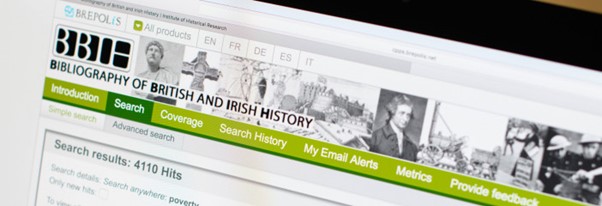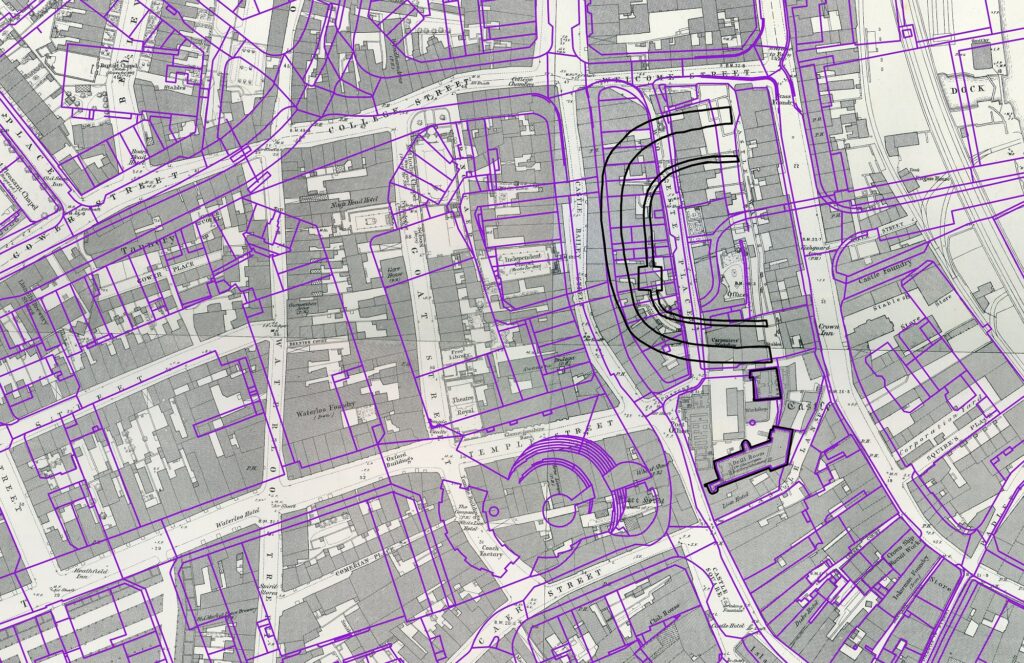A number of interns were able to join the Institute this year, thanks to generous support from the IHR Trust. Interns worked alongside IHR Fellows on varying research projects, from transcribing oral history interviews on Windrush, to working on the history of emotions with the Bibliography of British and Irish History (BBIH), expanding their skills and experience, as well as aiding the research of the Institute.
Here, some of our 2022/23 interns talk about their experiences of working at the IHR and how valuable the support of the IHR Trust has been.
BBIH Internship, supported by the Past and Present Society

Giacomo Savani
‘During my internship, I collaborated closely with Jenny Lelkes-Rarugal to critically engage with less-investigated histories of gender identity and support BBIH users to exploit the rich array of materials available. I contributed to the catalogues of the database and reviewed the subject indexing, proposing more precise and inclusive language. I also designed a ‘gender help pack’ video to help BBIH users interested in gender find their way through the database. Finally, I wrote a blog post on gender and bathing in antiquity for the Women History Network website and On History.’
This internship gave me the exceptional opportunity to meet almost all the members of the IHR staff, who were incredibly generous with their time. I was also able to use the outstanding library of the Institute, which gave me a boost in writing a book on rural baths in Roman Britain I’m currently working on.
Gaverne Bennett
‘I recently completed my three-month internship at the BBIH, during the Summer of 2023. I was asked to look at the BBIH through the prism of Race and Ethnicity. As a PhD History student at Leicester university I had hoped getting to work with the BBIH would give me a different perspective on historical research. My hopes were most certainly exceeded in this regard and in so many other ways.
Firstly, I was introduced to an excellent training program where everything was clearly outlined—deadlines, objectives, things to focus on and when—that I found took me step-by-step through the workings of the BBIH. This was down to superb organising skills of Jenny Lelkes-Rarugal (more later). I found that every detail had been thought through and consideration of how it might feel to be looking at such a vast array of information had been taken very seriously.
Secondly, as I went along, I realised that each week had been meticulously planned so that my confidence and understanding would be allowed to grow organically. At each new stage I realised I had fully been prepared by the work in the previous week. As a result I found the whole experience incredibly fruitful and enjoyable. I was introduced to a number of leading historians, giving me the privilege of having the most interesting, insightful, and invaluable conversations about history.
I was truly sad when the whole thing came to an end. Actually, I worked an extra week or two because I felt I wanted to contribute more as I found the whole thing so pleasurable and the work of such significance. I have to say that my admiration for the work Jenny Lelkes-Rarugal does increased exponentially each day I worked with her. Jenny has developed a training program that was absolutely perfect in the sense that it was so clear it mostly left me with little or no questions. The way Jenny organised the work folder, checked my understanding of things, showed patience when I was struggling, genuinely made this a great learning experience worth treasuring.
Working with Jenny and the BBIH helped me immeasurably as an academic as it gave me a glimpse ‘behind the curtain’ at how vast information can be presented in an intelligible way. It has made me stronger academically, more able to understand the parameters of the historical field, and made me more confident in approaching bibliographies and libraries. I am proud to say that I have worked with the BBIH and have said that I would be happy to continue working with the BBIH now, having seen the scale and scope of what it offers to anyone interested in History.’
Read Gaverne’s blog about the BBIH internship.
IHR Summer Internships

Juliette Desportes, Centre for the History of People, Place and Community (CHPPC)
‘The IHR summer internship provided a wonderful opportunity to further develop my skills as a historian while exploring alternative career paths. The internship was the outcome of a collaboration between the IHR and the Centre for History, University of the Highlands and Islands. For three months, I interviewed academics based at the Centre for History and heritage organisations which have collaborated with the Centre on various public engagement and community projects. The internship was hugely beneficial to build my academic CV: I gained experience conducting interviews, wrote a report, and further academic publications are in the works. In addition, I benefitted from direct collaboration with the CHPPC, and appreciated the kind welcome and guidance provided by Ruth Slatter and Catherine Clarke. Both made me feel like a valued member of the CHPPC. On a more personal note, the internship was also a way to reassess my priorities in a transitional time after the submission of my postgraduate thesis. This experience has cemented my desire to work with communities in the Highlands and Islands and further adapt my research practice to serve members of the public. While I am still considering an academic career, I now feel better equipped to pursue jobs in the community development and heritage sectors.’
Read Juliette’s blog about the internship.
Eloise Grey, BBIH
‘I was appointed intern at the IHR to look at decolonial approaches to the BBIH and to support the bibliography’s work on the history of emotions as these are both my areas of research. I feel extremely grateful to the IHR Trust for enabling me to have this experience. I learned a great deal and expanded my scholarly network, and in this way, I developed my sense of self as a scholar. It gave me more confidence. I have recently found a permanent job; I am sure this experience contributed to that success.
I would like to appreciate the exceptional support I was given by Jenny Lelkes-Rarugal. Jenny is very structured in her work as well as being sensitive to whatever needs I might have. Jenny gave me a clear schedule of deliverables and spent time training me in the use of the bibliography and cataloguing system. I was guided at every step of the way, but also given space to bring my own approach and ideas. We had enriching conversations about critical cataloguing, and I learned from this. Jenny was open to the challenges of decolonial approaches and is committed to making BBIH a more inclusive resource, so I look forward to seeing how it develops.
The warm welcome and support, from Professor Langhamer to the broader IHR staff, was impressive. It was insightful to be part of a different institution, however briefly, and this restored my hope in the collegiality of the history community. The library funded my trip south to spend a few days at the IHR and Jenny set me up with a range of meetings with members of staff, all of whom were generous in their conversations with me.’

